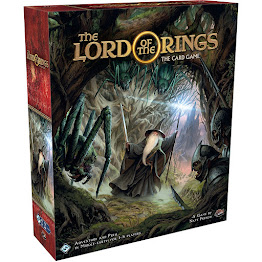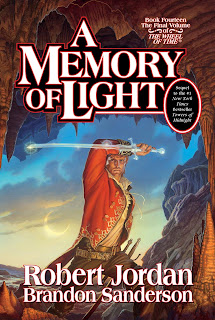We all suffer and know others who have. And so esteemed scholar D.A. Carson wrote How Long, O Lord?, "a book written by a Christian to help other Christians think about suffering and evil." It is not "a comprehensive guide to the problem of suffering;" the goal is to help "Christians establish patterns and habits of thought that are so strong that when the hardest questions batter the soul there is less wavering and more faith, joy, and hope." He divides the work into three sections:
- thinking about suffering and evil,
- parts of the puzzle: biblical themes for suffering people, and
- glimpses of the whole puzzle: evil and suffering in the world of a good and sovereign God
Select Highlights
What follows cannot be called even a summary, as I must for sake of brevity forsake the nuance the topic calls for (and Carson conveys in the book). I thus call it 'select highlights.'
Carson starts by exploring false thoughts- sometimes our difficulties with this topic reveal that we ignore the biblical framework. For example, suffering can compounded by our surprise that it happens (or that it happens to us). Yet nobody- the Christian included- is immune from evil or suffering in this fallen world. And Scripture never indicates otherwise; we need look no further than the cross. "From any Christian perspective, our theoretical and practical approach to evil and suffering must fasten on the cross, or we are bound to take a false step."
So what does Scripture say? In a nutshell, that sin has serious consequences. "Between the beginning and the end of the Bible, there is evil and there is suffering. But the point to be observed is that . . . the two are profoundly related: evil is the primal cause of suffering, rebellion is the root of pain, sin is the source of death." We suffer because we are evil; we are a fallen and rebellious people, completely at odds with a good and faithful God. We could end the matter there- "we have no fundamental right to expect a life of unbroken ease and comfort"- but (mercifully) there is more to the story. "The Bible itself centers on how God takes action to reverse the dreadful effects and their root cause, sin itself." That is wonderfully good news, and we see its culmination in Jesus on the cross. Jesus paid for the sins of those who believe in Him . . . but that does not end earthly suffering. What does He say about suffering?
Jesus treats things that cause suffering (like wars and natural disasters) "as incentives to repentance." He does not treat them as unfair (as we often do) or shocking. (We would do well to remember that the unfair and shocking thing about life is not suffering but the inverse- God's goodness and forebearance towards a wayward people.) In fact, God can use suffering as a means of discipline and growth for His children- it can be used to encourage repentance, produce perseverance (see Romans 5:3-4), shape us, engender compassion, and develop maturity (see Hebrews 5:7-9, where it says Jesus learned obedience from what he suffered- whoa).
The gospel perspective of eternity and the life to come is also a comfort. We live in the 'in-between' time of the already and the not yet- Christ has already come once, died for sins, and rose again, but he has not yet returned (as he promises) to usher in the new heavens and earth. He has already won over death and evil, but we will still experience suffering until His return. When we see things from the 'vantage point of the end,' things looks different for the Christian, as we yearn to depart and be with Christ, which is far better. And so "when we are bereaved . . . our sorrow turns, rightly, on our loss and loneliness, on the wrenching separation, on the frustration of hopes and plans, on our personal emptiness." But we do not sorrow for the person gone so long as they are in Christ. We should be "homesick for heaven."
All this is NOT to say that our reaction as Christians to the horrors of the world should be a stoic acceptance of this grim reality. We should never shrug off these things as though they didn't matter- the Bible doesn't.* In the numerous sufferings shown in Scripture, God never minimizes it or tells His people to 'grin and bear it.' Look at Job, where we see that "God does not blame us if in our suffering we frankly vent our despair and confess our loss of hope, our sense of futility, our lamentations about life itself." More importantly, look at Jesus. He suffered (again, look to the cross) and cried out to God about it. God knows about suffering through His own experience. If he suffered horrifically (and unfairly!), should we not expect the same?
It is necessary to develop a strong framework of thought before suffering comes. Even so, when it does, it is a shock to our system. What can our friends do then? As Carson mentions at numerous places, "there are many forms of practical comfort and support that thoughtful people can show." I'll mention five of the things he references:
- "Grief normally passes through predictable stages."
- Know the stages (and the signs of each) to help respond appropriately.
- "Some grief takes a long time to heal."
- Don't give people a few months and then expect them to move on. It may take much longer.
- "The most comforting "answers" are simple presence, help, silence, tears."
- "It is important to help people live one day at a time."
- "Above all, we must help people know God better."
Review
I picked this up as the pandemic and Ukraine have been on my mind. There is so much suffering today. And here Carson looks at both 'big' topics like poverty, corrupt governments, war, and disease, and 'focused' matters like personal bereavement and loss.
As with his other books, this is solid. Carson writes well- he is succinct, direct and profound. It is heady in places- my mind was spinning at times. He is confident and biblical, yet he frequently qualifies his statements- not to be wishy-washy, but because he rightly understands the nuances, tensions, and complexities of wisdom. I especially appreciated his discussion on compatibilism (the paradox that God is absolutely sovereign & humans are morally responsible creatures), introduced as he looked at the suffering through that lens. God is in control- that is comforting. Man is still responsible for our conduct- that is sobering. Come quickly, Lord Jesus.
Rating: A
*Still less should we assume that when an unusual tragedy befalls someone, it is necessarily due to their sin (Jesus addresses this point in John 9).





























